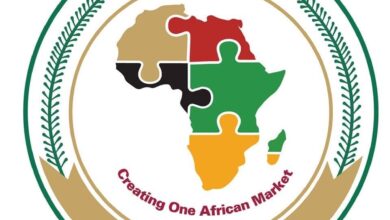Zim to benefit from AfCFTA

The African Continental Free Trade Area (AfCFTA) entered into force on May 30, 2019, with trading starting in January 2021. This is a trade opportunity for Zimbabwe to further grow exports and boost economic growth and transformation, the Secretary General of AfCFTA, Wamkele Keabetswe Mene said, during ZimTrade’s Exporters’ Conference held in Harare earlier this month.
In his speech, he mentioned that export potential for intra-Africa trade is estimated to be close to USD85 billion and a projection of growth in the current level of trade is expected to rise to more than USD230 billion. This will potentially account to 22% of total African trade with all conditions remaining the same.
He urged the private sector in Africa to explore trade and investment opportunities presented by AfCFTA in trade of both goods and services while also mentioning of how Zimbabwe has a generous endowment of resources and a skilled labour force which gives the nation an unprecedented opportunity to join the supply chain in Africa through AfCFTA. He commended the trade history Zimbabwe has and gave an example of Great Zimbabwe.
According to UNDP Zimbabwe AfCFTA was launched at the start of the implementation of Zimbabwe’s first National Development Strategy (NDS1), and it holds great potential to accelerate Zimbabwe’s implementation and achievement of both the NDS1 and the Sustainable Development Goals (SDGs) through increased trade and increases in jobs, income, foreign currency and economic growth.
After full implementation, the free trade area will be the largest free trade area in the world, not only by size but by membership as well.
Lack of an integrated market, a seamless economy and global competitiveness in the export market is a challenge that Africa faces. This challenge is something the continent needs to face and fix on its own.
The early 2000s ushered in growth for the African economy, however, this growth has not been shared by all as there is high unemployment. Also, this growth was not experienced by the rural population and the urban poor. Women and youth did not benefit from this growth as well. For the growth to be shared by all there is need for structural transformation of Africa’s economy and that is what AfCFTA is all about, the Secretary General added.
This free trade area is expected to change millions of lives in Africa for the better and Zimbabwe has a role to play by offering expertise, infrastructure, goods and services among other things. Africa is on the rise and Zimbabwe is rising with it.




